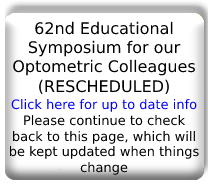Northern New Jersey Eye Institute on ZocDoc
Post Operative Care in Cataract Eye Surgery
As we age, so do our eyes. Cataract is a clouding of the lens inside the eye, behind the colored part of the eye (iris). In a healthy eye the lens is clear or transparent, when cataract develops, the lens becomes cloudy and this prevents the light rays from passing into the retina, thus, the vision becomes dull and fuzzy. Cataract usually progresses slowly, that leads to blurry vision and sometimes complete loss of vision if untreated.
A cataract can totally impair vision, and one of the only solutions is cataract eye surgery. In cataract surgery, the damaged lens is removed from the eye and replaced with an implanted permanent intraocular lens (IOL). There are several types of intraocular lenses that your doctor will discuss. Some of them are:
Accommodative Lenses
Accommodative lenses work naturally with muscles in the eye to retain the eyes' ability to focus on nearby and distant objects and everything in between. With traditional IOLs, patients lose this ability after cataract surgery and often require corrective measures such as glasses or contact lenses
Toric Lenses
Toric IOLs are specially designed for patients with astigmatism. Traditionally, surgical correction of astigmatism required making a series of small incisions (called LRIs) around the cornea to make it more spherical instead of football-shaped. Implanting toric IOLs often improves vision due to astigmatism without the need for these extra incisions, and also allows patients to enjoy a faster, more comfortable recovery.
TECNIS Multifocal and Crystalens are new cataract replacement lenses that allow the eyes to "accommodate", that means to be able to shift focus between nearby and distant objects.
Cataract surgery is usually performed in less than an hour. It may not hurt at the time, but there may be minor pain during the healing process. If you had or will have cataract surgery, here are some of the basic postoperative care tips that you might want to take into considerations after cataract surgery:
-
Avoid rubbing or squeezing your eye(s), dirt may cause infections.
-
It is advisable that you wear an eye shield. Dark eyeglasses may be worn during the daytime.
-
After surgery, avoid splashing water directly into the eye for it may cause slight irritation and use clean, soft, wet towel to wipe your face.
-
Avoid driving unless your doctor has told you that it’s okay to do so; your eyes might still feel uncomfortable during the healing process and can lead to road accident.
-
Always follow your eye surgeon’s advice, and be sure to ask them any questions or concerns you may have.
-
Take any medicines (as directed) that have been prescribed by your eye doctor.
Many patients report clear vision shortly after cataract surgery. But each person heals differently, and you may need as long as a week or two before you see images in their sharpest focus. Your recovery should be short especially if your health is in good shape. The healing process varies with each patient but following the eye drop regime and post surgical do’s and don’ts will help!
In case of decreased vision or flashes of light in the operated eye, contact your eye surgeon immediately. For more information regarding cataract surgery, talk to one of our eye doctors now by calling (973) 763-2203.

"Dr. Crane is one of less than 100 doctors in the United States to be able to bring this new technology to his patients."
"Dr. Crane is one of less than 100 doctors in the world who have been approved to participate in the iDose FDA trial"
iDose exchange
"Dr. Crane is one of less than 15 doctors in the United States to perform this procedure for his patients."
"Dr. Crane is one of less than 15 doctors in the world who were approved to participate in the iDose exchange FDA trial"
Infinite
"Dr. Crane is one of less than 15 doctors in the United States who were able to bring this new technology to his patients."
"Dr. Crane is one of less than 15 doctors who were approved to participate in the iStent Infinite FDA trial"
General
Eye Injuries From Paintball Guns, Air Guns and Other Projectile Toys
FDA issues warning for contaminated eye drops that can cause infection.
"Dr. Crane and Glaukos have a long history of working together on several medical device and pharmaceutical studies. He has been able to offer these technologies to his patients and the products from these studies have progressed to help treat hundreds of thousands of patients in need."
Employment Opportunity: Optometrist in Essex, Morris, and Union Counties
Dr. Crane Top Doctor 2019
Congratulations to Dr. Crane for being the 2nd surgeon in the United States to perform a new treatment for Glaucoma. We hope this treatment will bring further advances in the care of our glaucoma.
ASCRS Thanks Dr. Crane for Volunteer Work
Dr. Spier Named to OSN's Premier Surgeon 300
Dr. Spier: Weekend Comedian
Dionne Warwick on Dropless Surgery [VIDEO] (Surgery Performed by Dr. Spier)
Dr. Crane and Staff congratulate their patient Dr. William Scaife
Dr. Crane named to the ASCRS Council of 100
 Dr Crane meets one of his favorite Sharks, Daymond John, at a book signing!
Dr Crane meets one of his favorite Sharks, Daymond John, at a book signing!














